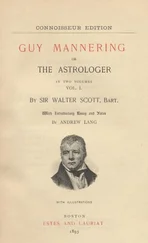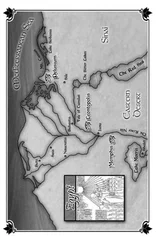“And I,” Tatian said, “would like to hear what you can do for me before we start talking prices.”
Starli’s smile widened, became for a fleeting instant genuinely amused. “Fair enough. Will you step into my office, mir?”
Tatian looked at Reiss, who said quickly, “I’ll wait here.” Tatian nodded, and the younger man moved to join the technicians, who relaxed at his approach.
The office was tucked into a corner, a square room that had obviously been an afterthought. The walls were glass brick, the cheapest of Hara’s building materials, half clear, half translucent, and in the instant before Tatian followed her into the milk-white room, he could see how the interior lights glowed through the walls, like radiant ice. It was an odd image, on a planet as warm as Hara, and he was smiling as she shut the door behind them. Starli gave him a curious look, as though she wondered what had amused him, but said only, “What’s your system, then?”
Tatian shrugged out of his suncheater, laid his arm on the battered desktop, turning his wrist to expose the control plate on the inside of his right forearm. “Inomata Cie., parts and bioware.” Their implants were the standard throughout the Concord Worlds; if you didn’t wear Inomata’s implants, you wore their clones.
Starli grunted, switching on a powerful viewlens, and tugged it down toward his arm. She turned away and rummaged on shelves crowded with bits of equipment to produce a black-foam cradle and a set of multicolored cables. “Have a seat and let me run a few quick tests. No charge.”
Tatian nodded, and pulled a stool close to the desk, sat down opposite her. He placed his arm in the cradle, plate uppermost, and Starli pulled the viewlens closer still, its thick edge blocking his sight. He could feel the heat of the lights, and then, more distantly, the click of the plate release. He tilted his head slightly, wanting to see what she was doing, but the viewlens was still in his way. Starli saw the movement, however, and glanced up, a quizzical expression on her face.
“Do you want to watch?” Most people don’t , her tone implied.
Tatian said, “Yes. If you don’t mind.”
She shook her head. “No problem.” She pulled the viewlens down and slightly to one side. “How’s that, can you see all right now?”
“Thanks.”
Starli mumbled an absent acknowledgment and leaned close over the lens. Now that the flesh-toned plate was removed, Tatian could see the shallow cavity, and the gray, faintly spongy surface of the interface box, with its remote reader, circular i/o port and the quintet of smaller needle ports surrounding it. Flesh welds bound it into place, the ridged scars normally concealed by the protective plate: Frankenstein welding, the cheapest kind of implant surgery. Starli fanned a handful of fine wires and plugged them deftly into the needle ports; watching her certainty, Tatian began to relax. She was more like a mem than most women, certainly more so than the fem he had briefly suspected she might be, stolid and quietly competent in her work—but that was an old stereotype, and just as untrue as all the less flattering ones. Prane Am had been a technician, too, and a good one, and there was no mistaking her for a mem.
“All right,” Starli said, and plugged a jack into the main port. “Tell me when it hurts.”
“Right now,” Tatian said, and winced as more static sang along his nerves.
Starli murmured something, squinting through the viewlens. Tatian could see blue lines and pale pink shapes drifting in the glass, but it was impossible to read their message at this angle. Static ebbed and flowed along his arm, was replaced briefly by numbing cold, and then the sensations vanished.
“Well, you’re in luck, mir,” Starli said. “It’s the port, that’s all.”
“All” was a relative term, Tatian thought, but he understood her point. “Which one?”
Starli pushed the viewlens to one side, met his eyes for the first time across the desktop. “I can run some more tests and tell you for sure—at a price—or you can replace the box altogether. Frankly, I’d recommend the latter.”
Tatian waited and, after an instant, tilted his head to one side. Starli sighed and folded the viewlens back down to the desktop, then tugged the cables one by one from the needleports.
“You can get a better deal at the port yourself, and you’re likely to have better luck getting it officially imported—or whatever—than I would.”
That was also true, and Tatian nodded slowly, thinking of Prane Am. If he wanted a good deal, he would have to go to her, which was not a pleasant thought—or maybe Reiss had connections there as well. He said, “Probably. Do you do installation?”
“Yes. But—” Starli showed her teeth again. “I’d want to be paid in metal.”
“And I’d want to see your medical set-up,” Tatian said, and matched her tooth for tooth.
“Fair enough,” Starli said. She pushed herself up from her chair, went to a cabinet built into the wall, and tugged open the double doors. The first layer of the interior folded down automatically into an operating table, the clean-field lighting automatically; the multicolored telltales of the monitoring system glowed in the space behind it. Tatian scanned it quickly, recognizing the bulk of a doc-in-a-box and the familiar stacks of test equipment, and only then saw the twined KJ etched into the edge of the table. It was an older system, but it had been top of the line once: it was certainly good enough to replace an interface box.
“Okay,” he said aloud. “What are you asking?”
“Fifty kilos of hard steel,” Starli answered promptly.
“Try reality.”
“That’s two starcrates,” Starli said. “NAPD must be able to spare that much—especially compared to what it’d cost you to get this done in the port.”
She certainly bargained like a fem. Tatian said, “I still have to buy the box. You’re not saving me anything there. Besides, star-crates aren’t cheap, and they come out of my budget. Twenty thousand meg.” That was eighty percent of what he’d pay in the port, but she wanted metal: she would take less in cash, if she could get a starcrate or two with it. He ran the company inventory rapidly through his head, enjoying the game. He knew they couldn’t spare any of the working crates—they were too expensive, nearly a thousand concord dollars apiece—but most of the value was in the electronics package. If there were any damaged crates, he might be able to use the metal shell to buy her services.
“I’ll take a crate instead,” Starli said, as though she’d read his thought. “Or just the metal. Forty kilos hard steel.”
“I can get you ten,” Tatian said. “And five thousand meg in cash.”
“Thirty kilos, and no cash needed,” Starli answered.
“Twenty and six thousand,” Tatian said. “I—even the company doesn’t have that much metal to spare. And you’re not supplying the parts.”
There was a little silence, and then Starli sighed and touched the latch plate to refold the operating theater into its cabinet. “All right. Twenty kilos hard steel, and six thousand meg, White or Red cash. Agreed?”
The currencies issued by the White and Red Watches were the most stable, had the best rate of exchange against the concord dollar, though most Harans didn’t bother with those considerations. But then, Tatian thought, Starli would be buying metal, or metal parts, with a good bit of her fee, and that meant dealing with the port technicians. “Agreed.”
Starli bowed, touching lips and forehead. “Then it can be done at your convenience, mir. Whenever you get the box, give me an hour’s warning, and I can put it in.”
“Good enough,” Tatian said. “Thanks, mirrim.”
Читать дальше












